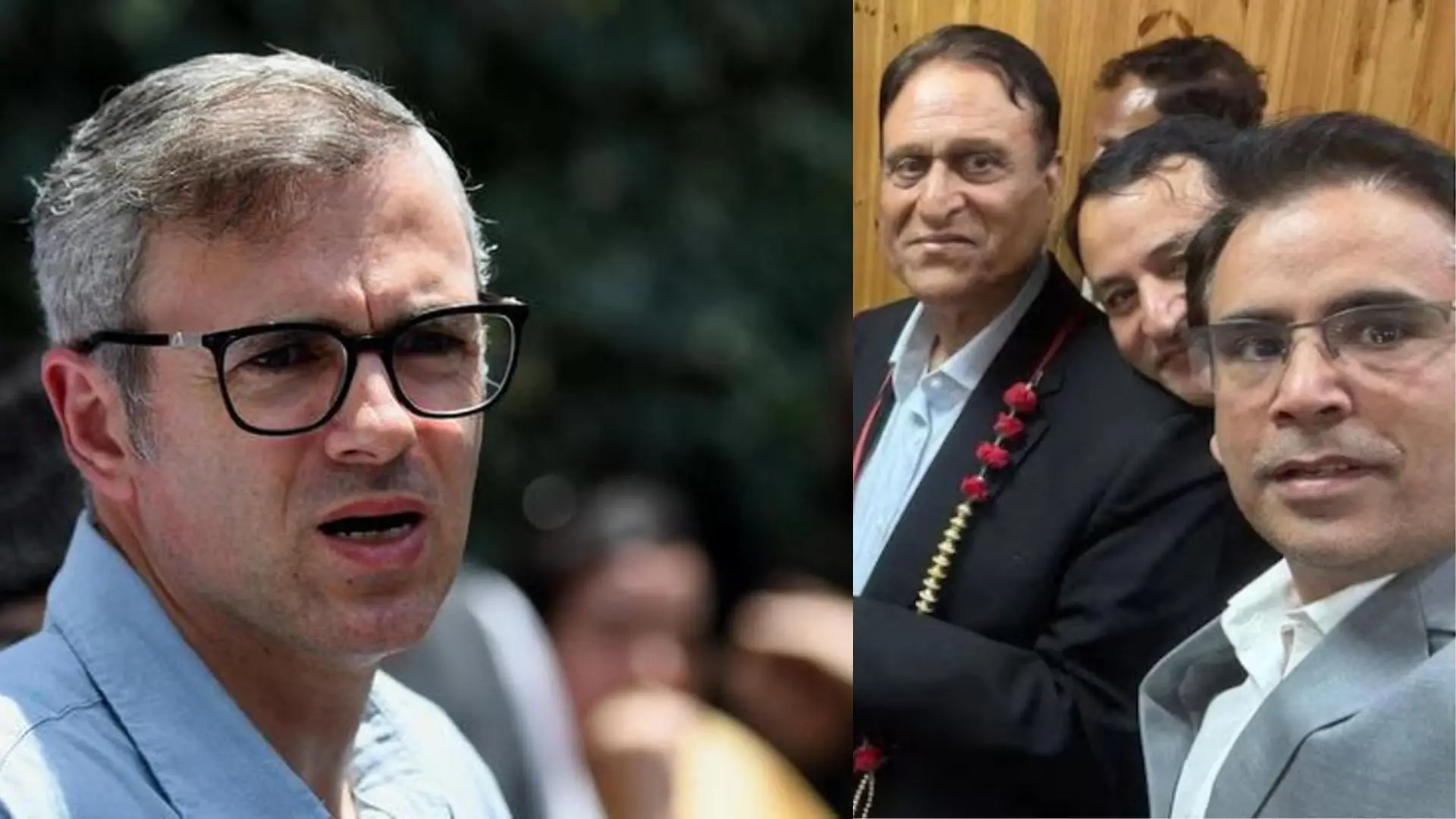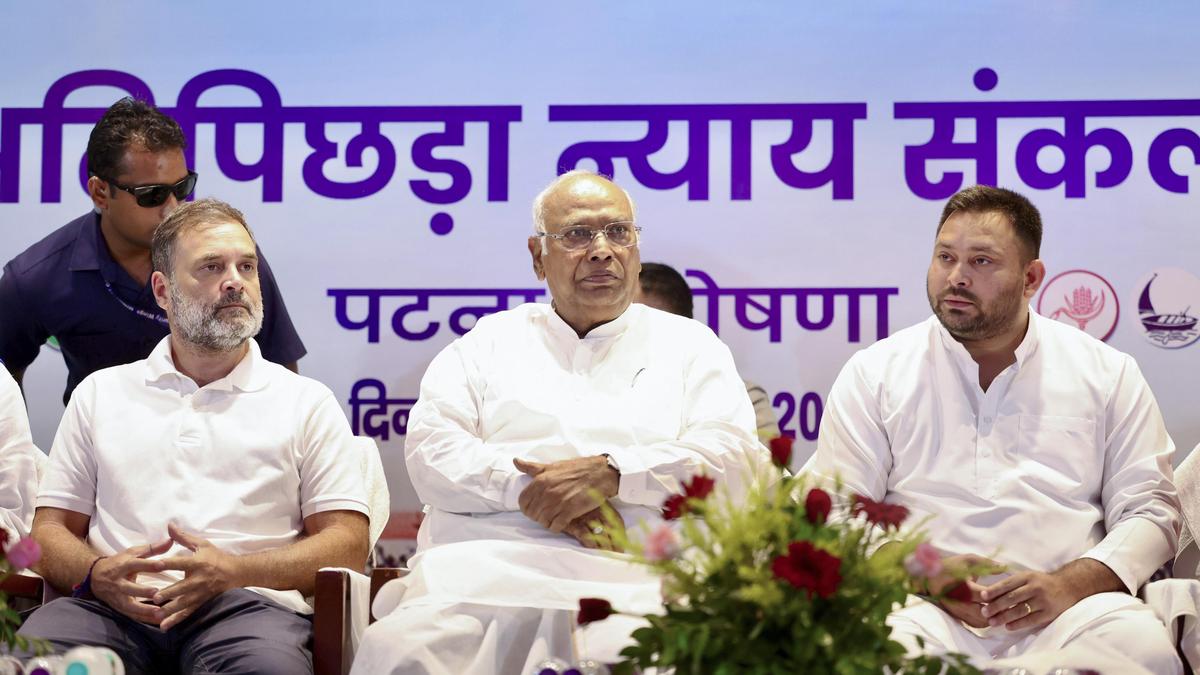Copyright republicworld

Srinagar: The October 24 Rajya Sabha elections in Jammu and Kashmir, the first since the abrogation of Article 370, have reshaped the political narrative in the union territory. The National Conference (NC), backed by the Congress, PDP, CPI(M), and several Independents, secured three of the four seats. The Bharatiya Janata Party (BJP), despite its numerical disadvantage in the Assembly, clinched one seat, raising questions about cross-voting, internal dissent, and strategic alignments.NC’s Choudhary Mohammad Ramzan and Sajjad Ahmad Kichloo won with 58 and 57 votes, respectively. GS Oberoi (Shammi Oberoi), the third NC nominee, secured 31 votes. BJP’s Sat Paul Sharma won the fourth seat with 32 votes, defeating NC’s Imran Nabi Dar. BJP’s win was made possible by four cross-votes from legislators outside its camp, three invalid ballots, and one abstention by People’s Conference chief Sajad Gani Lone.The votes of Mehraj Malik, MY Tarigami, and Shiekh Khurshed went to the NC, as per reports. Congress and PDP also backed the NC-led alliance, contributing to its overall strength. However, the BJP’s ability to secure 32 votes, despite having fewer MLAs, has triggered speculation about horse-trading, strategic persuasion, and possible dissent within the opposition bloc.The three invalid votes added to the drama. In a tightly contested election, these ballots could have tipped the balance in favor of NC’s fourth candidate. Their rejection, whether due to procedural error or deliberate protest, effectively reduced the vote pool and helped the BJP’s nominee edge ahead.Sajad Lone’s abstention was another critical factor. Lone, who has positioned his party as a third force in J&K politics, chose not to vote, signaling a refusal to align with either the NC or the BJP. His decision may have been tactical, preserving his party’s independent stance ahead of future elections. However, critics argue that abstaining from a vote of such significance undermines representative responsibility.The role of Independents was pivotal. With no binding whip, several Independents became swing votes. While some supported the NC, others reportedly voted for the BJP, contributing to its surprise win. The identities of these cross-voters remain undisclosed, but their actions have sparked debate about loyalty, transparency, and political bargaining.Inside the NC camp, the mood is mixed. While the party secured three seats, the loss of the fourth, despite the numerical advantage, has led to introspection. NC vice president and sitting Chief Minister Omar Abdullah said, “We were let down at the last moment. Some MLAs broke their commitment to the alliance.” The party is expected to investigate the cross-votes and demand accountability from allies.BJP leaders, meanwhile, celebrated the win as a strategic breakthrough. Leader of Opposition (BJP, J&K) Sunil Sharma said, “This victory shows that our message is resonating beyond our core base. We thank those who supported us.” However, the BJP’s ability to secure votes from outside its camp is being viewed as a sign of growing influence and tactical maneuvering.In the Valley, reactions have been cautious. While NC supporters welcomed the three-seat win, many questioned how the BJP managed to secure a seat despite its limited numbers. Social media users and political commentators speculated about a “fixed match” between the NC and the BJP, suggesting that the outcome may have been pre-negotiated to serve mutual interests. Though no evidence supports these claims, the perception reflects broader mistrust in post-2019 political processes.Next week’s Assembly session is likely to be a dramatic one; the opposition is expected to confront the government over the breach in alliance discipline, demand clarity on the invalid votes, and question the transparency of the process. The BJP, energized by its unexpected gain, may use the session to project growing influence and court Independents. With the People’s Conference maintaining distance and Independents holding sway, the session could see sharp exchanges, strategic posturing, and renewed efforts to redraw legislative equations.The outcome of the recent Rajya Sabha elections in Jammu and Kashmir has not only reshaped the parliamentary representation of the union territory but also intensified political calculations ahead of next month’s by-elections in the Budgam and Nagrota assembly constituencies.With the National Conference winning three seats and the BJP securing one through unexpected cross-voting, parties are reassessing strategies and alliances. More than a contest for four seats, the election exposed shifting loyalties and undercurrents within the Assembly. The presence of invalid votes and abstentions has added to the uncertainty, leaving observers to consider whether this outcome signals a temporary disruption or the start of a broader political shift in the newly carved union territory of Jammu and Kashmir.Also Read | Rajya Sabha Polling: BJP Blocks Clean Sweep of National Conference, Wins Single Rajya Sabha Seat



